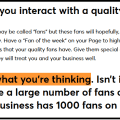These are what we call the “ouch” mistakes… the ones that make anyone with an editing background cringe or close the window or put down the book. These are the one that will lose you business, writing or blogging credibility. These are the ones that will sabotage even your best efforts to brand yourself or your business.
Table of Contents
Mary’s Top 10 List of Common Spelling, Grammar and Punctuation Mistakes

10. “Fewer” vs. “Less”
If you can count the items, use ‘fewer’: If I eat fewer calories, I will lose weight. With fewer employees, we will not be able to provide good customer service.
If you can’t count the items, use ‘less’: We need to concentrate on less expired inventory.
9. “Their own”; “My own”
If it’s already yours, then adding the word ‘own’ is redundant (i.e. you’re using two words to say the same thing), for example:
Incorrect: It was my own idea.
Correct: It was my idea.
8. “Irregardless”
No such word! Adding “ir” in front of “regardless” is completely redundant. “Regardless” is the correct word and the only correct word.
7. “I.e.” vs. “E.g.”
This applies primarily to academic, business or formal writing; rarely to fiction. But, it’s important to know the difference if you really want your writing to shine.
I.E. means “that is”. If you use ‘i.e.’ it means you are referring to something specific and unique: There were only two possibilities (i.e. house arrest or imprisonment). If there are any other possibilities, you cannot use ‘i.e.’ and should use ‘e.g.’.
E.G. means “for example”. This is for giving examples to support your statement: There were a number of possibilities (e.g. house arrest, suspended sentence, probation or imprisonment). If you use ‘e.g.’ NEVER put ‘etc.’ at the end of the list. Putting ‘etc.’ at the end is redundant when you’ve already used e.g.
6. “Which” vs. “That”
Without getting into the details of grammatical constructions, the simplest rule is this: If you have a phrase that uses ‘which’, it must be preceded by a comma. For example:
Correct: The Himalayas, which feature the tallest mountain peaks in the world, have killed many an ill-prepared climber.
Incorrect: This was a time which he barely remembered.
Correct: This was a time that he barely remembered.
(Note: Many writers no longer include ‘that’, as a way of smoothing the flow of the sentence (i.e. the way we talk). But, American English still clings to ‘that’, so it pays to know the difference, depending on which market you are writing for.)
Comment: Are we having fun with English yet??
For more information: Spanisch lernen in Havanna, Kuba

5. “Your” vs. “You’re”
Now we’re getting to the teeth-grinding errors; the ones that just drive me away from a website or blog and on to better reading pastures!
“Your” is a possessive. Period. It is your book, your blog, your web site.
“You’re” is a contraction of “You are”: You’re right; You’re certain it’s true?
4. “Lead” vs. “Led”
Thanks to automated spellcheckers, many people believe that ‘lead’ is the past tense of the verb ‘to lead’. The correct past tense is ‘led’. I know, the past tense of ‘to read’ is ‘read’. Welcome to English rules/counter-rules!
3. “Their” and “They’re”
“Their” is a possessive: Rick and Chantal love their new car.
“They’re” is a contraction of ‘they are’: They’re both worried about their son’s grades.
2. “Too” and “To”
“Too” means ‘as well’. I want to come, too. I’d like a cookie, too.
“To” is a verb. I want to do this. I’d like to read this, too.
Not all writers add a comma before ‘too’ but in novel writing, it is often the case, depending on your copy editor.
1. “Its” vs. “It’s”
And this is the game changer… if you don’t get this, I don’t read your blog or your book, let alone buy it:
“It’s” a no-brainer! “It’s” is short for “it is”. If you read a sentence out loud and ‘it is’ is the way it should be spoken… guess what? It’s an it’s!
“Its” is a possessive: The company president is concerned that its annual report won’t be popular with the shareholders.
These days, there has been an exponential increase in the number of web sites and blogs trying to attract traffic and volume. People with great ideas and products can quickly fall by the wayside if they’re not paying attention to their spelling, grammar, punctuation and what I would call ‘flow’.
Big hint? When you’re writing that one-hour 500-word article, take three extra minutes and read it out loud. You will catch awkward wording, incorrect spelling, etc. very quickly and it could make a world of difference to building your image and reputation online. JMHO.
Note from Chris: Mary made a comment below one of my posts, and thanks to her help, my article “How to Write an Article in Less Than One Hour – 10 Useful Tips” is corrected and written in proper English. What’s more, she agreed to write this helpful article for us.

























Nice post Mary.
I have always been stuck in using ‘its’ or ‘it’s’ in my posts. I always wondered them to be the same word. Now I know they are not the same.
Thanks for such an informative post 🙂
Mary – thanks for your great and helpful article!
Our visitors love top tens and we have linked this article in Writing Tips at http://www.writerguardian.co.uk
Thanks
@anthonybounds
Glad to be of help. Thanks for the link on Guardian… you beat me to it! Have a good one!
Mary, Great job here!
It’s quite scary to think that some these mistakes may have cropped up in one’s writing without notice.
Thanks for the gentle prod.
Scouting through my blog to ensure I do not lose readers like you…:)
Glad to be of help. Happy to do what I can free of charge when I have time, which isn’t every day. If you’d like to go over your pages, let me know. I will, at the very least, give you an assessment of strengths and weaknesses… this is what I do in my paying job!
It is very helpful post for me specially because as I’m from Afghanistan and English isn’t my primary language that is why I do a lot of Grammar mistakes.
I really enjoy reading these type of helpful articles and learning English more better. I’m also a big fan of Daniel’s DailyWritingTips.
I agree. I absolutely hate reading badly written blog posts / articles. It’s so obvious that many people do not re-read what they have written. I hate to say it though; I have big problems with grammar (and probably just proved it with the semi-colon), but your post hasn’t helped me with that! I suspect that people who already understand grammar sit and nod whilst reading your post, declaring “yes, yes!” to themselves as they do so, but for me … the explanations are too short and over-simplified. Sowwy 🙁
(I bet that drives you nuts too 😉 )
Nice post Mary! 10, 9, 7 and 6 are my common mistakes in writing.
Write on! And Happy New Year! Best wishes for laughter and joy in the year to come.
Useful post about grammar mistake, It’s best to learn from other’s mistakes than to feel the urge to commit one by oneself & then think of learning. I think we’ve all made some of these mistakes to some degree or another.